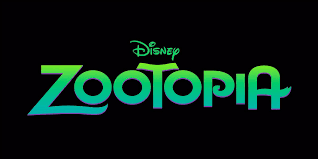Review: ‘Zootopia’ is more than meets the eye

March 22, 2016
It’s almost Easter.
Disney has just released a movie with a bunny as the main character. As a moviegoer who has seen plenty of seasonal animated movies, I expected Zootopia to be a glorified version of Hop. I couldn’t have been more wrong. While Zootopia looks like every other animated kids’ movie to hit theaters, it contains a stark social commentary on prejudice, racism, and an important message about the world we live in today.
Judy Hopps (Ginnifer Goodwin) is not content to be an average carrot-farming rabbit. She dreams of sprinting down the streets of Zootopia with a police badge glinting on her chest, but unfortunately the status quo is against her. Rabbits cannot be cops. But Judy is determined, and nothing anyone else tells her will stop her from achieving her dream. However, Judy has no idea what she’s in for as she delves deeper into a world gripped by prejudice and fears that date back to the dawn of time.
As a kids’ movie, Zootopia is a great watch. It’s cute, funny, and the jokes have a wide enough range that everyone in the family can appreciate them. And while it has many of the hallmarks of a standard Disney movie: the scoundrel turned sidekick, the big mystery behind a little case, and the pursuit of a dream, Zootopia still feels like an original film with the age old message “You can be anything you want to be”. But even though kids will enjoy it, at many levels, this movie isn’t really for kids.
In Zootopia, the animals live in harmony; or at least, that’s what it seems. Predator and prey have abandoned past aggressions and prejudices for a more civilized future. But as the movie goes on, it’s clear that these hard feelings are still alive; on a daily basis, animals are treated differently because of who they are, although society as a whole tends to ignore the issue. Sound familiar? Later on, a circumstance comes up where a few animals have become dangerous, and many jump to the conclusion that all predators have become a danger because of it. Even Judy finds herself pointing a finger at the predators as fear spreads and even those who used to live in harmony with predator neighbors now find themselves living in fear.
Zootopia also deals heavily with stereotypes. Judy struggles to be viewed as a capable police officer when the majority of society views her as an incapable rabbit who could only be good at farming carrots. Similarly, her partner in crime, a fox, became a con man because that’s what everyone expected him to be. Verbal racism also pops up in unexpected ways; throughout most of the movie, other animals dismiss Judy as just another “dumb bunny”, but the connection becomes painfully obvious when Judy reprimands a fellow police officer for calling her “cute”, saying, “a bunny can call another bunny cute, but when other animals do it…”
There are other themes in the movie that weren’t quite as emphasized, but were nevertheless present. Early in the film, it’s hard to miss the all-men makeup of the police force as Judy pursues what used to be thought of as a man’s job. But even with heavy themes, this movie is still light and enjoyable. The notion that “you can be anything you want to be” is the positive side to society’s negative repetition of “you can’t”. The movie strives to tell audiences that although prejudice and racism are still very much alive in our society, we can rise above it.
Despite the talking animals, this movie is very real. It deals with the issues that light up television screens on a nightly basis, but you almost wouldn’t notice because it’s coming at you from a fluffy animated rabbit. Overall, Zootopia is a must-see, not just because it’s a well-made movie, but because the message at the heart of it is an important one. So if you have any free time in the next few weeks, hop off the couch and go see it.
Rating: 9/10
Zootopia is currently showing in theaters.